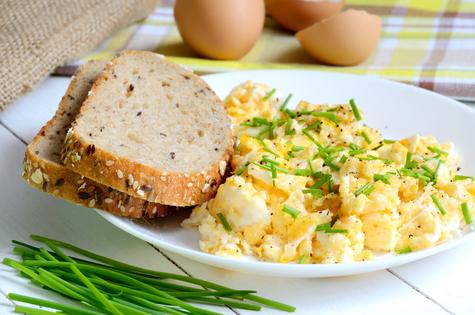Environmental Nutrition: Fuel your day with protein
If you want to stay active, vital and strong as you age, good nutrition -- with a healthy dose of protein -- is key. Now, new evidence shows that older adults need more dietary protein than younger adults in order to preserve lean muscle and prevent age-related declines in health and functioning. Sometime in our 30s we start losing muscle unless we make a point of halting that trend by staying physically active and including enough protein-rich foods in our diets.
Getting enough protein
"Our muscles are in a constant state of turnover," says Stuart Phillips, Ph.D., director of the Centre for Nutrition, Exercise and Health Research at McMaster University in Hamilton, Ontario. "I like to use the analogy that your muscle is like a brick wall. If bricks go in faster than they are taken out, the wall gets bigger and that's what happens when we grow as kids. When bricks get taken out faster than they get put in, the wall gets smaller and that's what happens when we age."
Those bricks are amino acids, which combine to form proteins. To have enough bricks we need to eat enough protein, and research suggests that the Recommended Daily Allowance (RDA) of 0.8 grams of protein per kilogram of body weight may not be enough for healthy aging.
"The RDA is defined as the level of protein required to offset deficiency in 98 percent of people," Phillips said. "In nutrition, this is how we used to define the [recommended] intakes of a number of nutrients, but we've advanced beyond that." A more optimal daily intake for older adults is at least 1 to 1.2 grams of protein per kilogram, he says.
Protein timing matters
One kilogram equals 2.2 pounds, so an older adult who weighs 150 pounds may need 68 to 82 grams (g) of protein per day. But there's more to getting "enough" protein than just hitting a daily target. Research shows that timing matters, because your body is constantly making and breaking down muscle, so there are benefits to encouraging muscle growth at each meal.
Here are three tips for optimizing your protein intake:
1. Aim for at least 25 g to 30 g of protein per meal. This maximizes your body's muscle repair and building machinery. In research studies, an uneven distribution of protein (too low at some meals, higher than necessary at others) is associated with frailty, slower walking speed, and fatigue.
2. Assess your breakfast. This is the meal where protein tends to be lowest, because foods like oatmeal, high-fiber cereal, and whole-grain toast are low in protein. Including these foods as part of a mixed breakfast with Greek yogurt, eggs, tofu, nuts or seeds can give you the benefits of both fiber and protein.
3. Vary your protein. While Phillips recommends low-fat dairy, eggs, and other animal proteins, in part because they contain the amino acid leucine, which is critical for triggering muscle building, plant proteins definitely have a place at the table. "It's important to note that it's not that plant-based proteins can't give you enough protein and/or leucine; they can -- but you just have to eat more of them to get the dose of protein you'd need." Of the plant-based proteins, soy foods contain the most leucine.
(Environmental Nutrition is the award-winning independent newsletter written by nutrition experts dedicated to providing readers up-to-date, accurate information about health and nutrition in clear, concise English. For more information, visit www.environmentalnutrition.com.)







